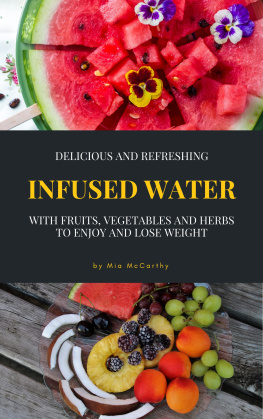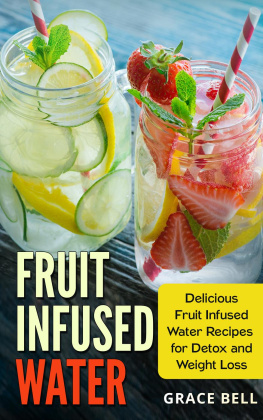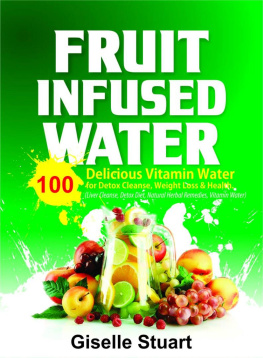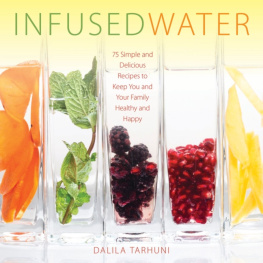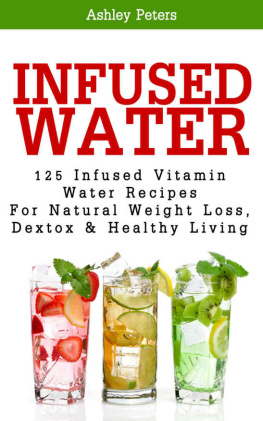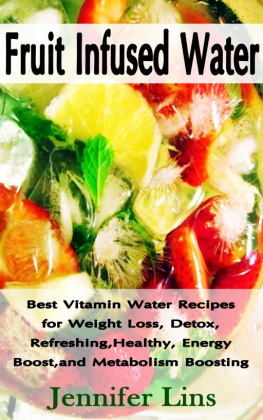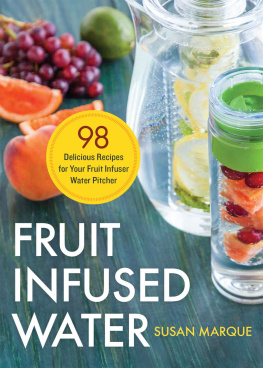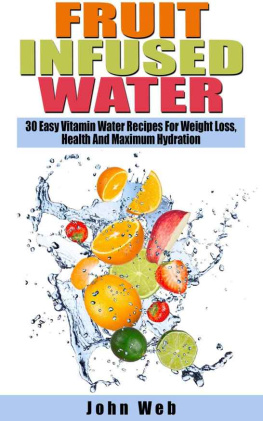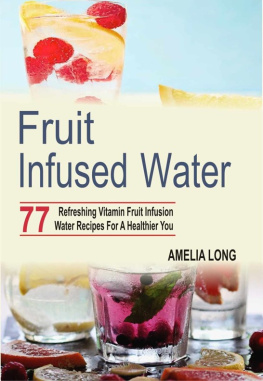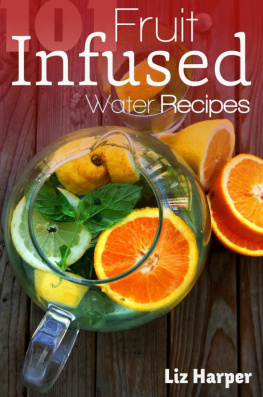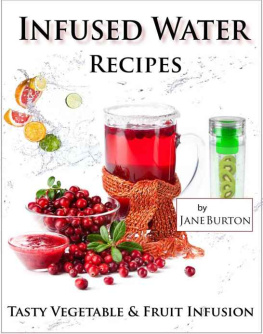Refreshingaroma water with fruits and herbs
Vitamin water is an optimal alternative to provide our body withsufficient fluids and important nutrients. Particularly on hotdays, you should take care to drink water or herbal teas. However,taking still water, at least in terms of taste, is not particularlyconvincing.
Tap water tastes bland and boring, not for nothing has the demandfor refreshing vitamin water increased. Traditional products areusually a mixture of water and caloric beverages enriched withnatural flavours and vitamins. Aroma water is available indifferent flavours. However, the important question is whetherthese soft drinks with artificial additives are really healthy whenit comes to finished products.
Vitamin water can also be made very easily and without much effort.There are now countless recipe ideas for all possible needs, notonly as a soft drink, but also special preparations of vitaminwater that support weight loss and detoxification from theorganism, or of course as an ideal supplement after exercise.
Depending on the preparation, vitamin water supplies new energy andalso helps us to compensate for a lack of nutrients with thisdrink. In the following chapters we will therefore show you thebest recipe ideas for your own vitamin water.
What isrefreshing and healthy vitamin water?
The idea to produce a special vitamin water comes from America.Founded in New York in 1996, Glaceau was the first manufacturer ofso-called smart water. Years later, energy drinks and vitamin waterfrom the same manufacturer came onto the market. The company wasthen acquired by Coca-Cola in 2007. In Germany, Glaceau beverageshave been available since 2012, but were discontinued at the end oflast year because sales did not meet expectations. In the USA,however, these vitamin waters are still in high demand. Among thebest-known products are the lemonade flavour Multi-V, the dragonfruit flavour Power-C, the citrus flavour known under the nameIgnite, and of course the essential vitamin water with orangeflavour. Every single combination allegedly offers a special effectdue to the vitamins and nutrients it contains.
The actual idea for vitamin water came from J. Darius Bikoff, thefounder of Glaceau and a well-known triathlete. Due to a cold heenriched his drinking water with vitamin C and zinc in order torecover more quickly. Today this drink is available under the nameDefense, it is vitamin water with apple and raspberry flavour. Notall soft drinks are really low in calories. Some of them havestevia added as an alternative sugar, but normal household sugarmay also be included in the vitamin water products on sale.
Vitamin water has long been a favourite drink among professionalathletes, but it is also frequently used in mountaineering, amongother things. Depending on the variety and brand, vitamin C,vitamins B, vitamin E, calcium and magnesium are added to thewater. However, biotin, sodium and pantothenic acid can also becontained in the vitamin waters. These are functional drinks, whichare basically based on table water, but contain vitamins, minerals,electrolytes and fruit and colour aromas. Electrolytes are alsovery important for our organism, as they protect us from heatdamage, which can threaten our lives together with a lack offluids. The most important biological electrolytes include calcium,chloride, hydrogen carbonate, potassium, magnesium, sodium andphosphate.
Electrolytes play an important role in our body, as they are mainlyresponsible for the spread of nerve excitation. They are also knownas minerals or ions and are contained in our organism only inlimited quantities. These substances decompose into positively andnegatively charged ions and are therefore also able to conductelectricity in an aqueous solution. As they have a direct influenceon the tension of the cell membranes, they are also responsible forthe various processes of contraction in our muscles. A lack ofminerals can therefore be expressed through painful muscle cramps.The most important ions in our organism are bound in water by ourbody. If we sweat a lot, we lose a lot of electrolytes. This isalso the reason why we have to drink a lot, especially on hot days,otherwise the electrolyte level can fall dangerously. This leads todehydration, which is associated with dizziness, nausea, dizzinessand heart rhythm disorders.
Especially competitive athletes have to pay particular attention totheir electrolyte levels, as they are naturally exposed to extremeloads and therefore also have a much higher demand for fluids. Theyare therefore dependent on a liquid absorption with electrolytes,which is why they prefer isotonic drinks in sports.
Effectivenessof electrolytes on the organism
Electrolytes or minerals are not only lost in competitive sports.Also frequent vomiting, diarrhoea or excessive sweating can lead toa deficiency. Since our body is unable to produce calcium,chlorine, potassium, magnesium and sodium on its own, it isdependent on food intake. In principle, our organism can regulatethe correct and necessary composition of minerals through hormones,because, for example, if the electrolyte content is too high, thenit is also excreted more strongly. Electrolytes can accumulate,especially if kidney function is impaired. They are then no longersufficiently excreted from our body. Taking medication can alsosignificantly affect the mineral balance and disrupt theelectrolyte level. Malnutrition, an increased alcohol consumption,as well as a disturbed function of the endocrine glands also leadto a lack of electrolytes.
An electrolyte fault occurs when the measured value deviatessignificantly from the standard level of the electrolytes. If thisis the case over a longer period of time, it may lead tohyperacidity, an impaired nervous system and in the worst case todeath due to the failure of the organs. Severe electrolytedisorders are usually the case with sodium, calcium or potassiumand are treated as medical emergencies.
A slight disorder, such as hyperacidity, can usually be easilycompensated for by consuming water or vitamin water. If the lack ofwater or dehydration is already too advanced and can no longer becompensated by drinking, then an infusion containing electrolytesis indispensable. Even a water shortage of only two percent in ourbody can cause symptoms such as dry mouth, headaches, little urine,low blood pressure and dizziness. Other symptoms are impairedvision, aggression, mental confusion and fainting. If the lack ofwater is not remedied, the tongue swells strongly and deliriumoccurs. However, those who ensure optimal fluid intake throughoutthe day usually have no problems with this. If you do notnecessarily want to drink vitamin water, you should look forvegetables and fruit containing pectin as well as foods rich indietary fibres. They are able to bind water and then release itslowly through the intestines.
Electrolytes control our water balance in the organism, which isimportant for the bile, as well as for the stomach and intestinalfluid, the synovial fluid and also for the brain water. They are ofgreat importance for almost all physical processes, as they arelocated inside and outside the body cells. By the way, our nervoussystem relies on electrolytes to pass on information and impulses.Through a balanced diet, sufficient minerals can be absorbed. Theyare found in fresh fruit and vegetables as well as wholemealproducts. However, it is essential to prepare them gently,otherwise the valuable ingredients will be lost if vegetables areboiled too long, for example, or washed too long under the tap. Bythe way, desserts and white flour products contain virtually nominerals, which is why consumption of these foods should belimited. Vitamin water is therefore highly recommended, as itprovides our organism with valuable nutrients and can thereforereally prevent many diseases.

